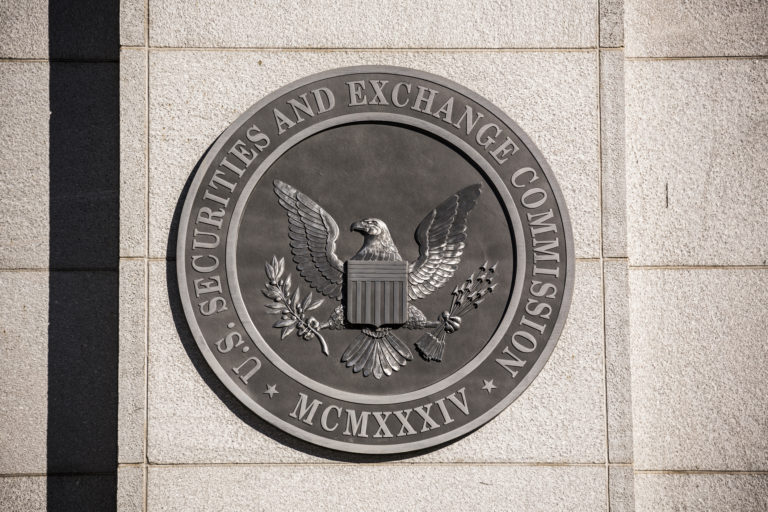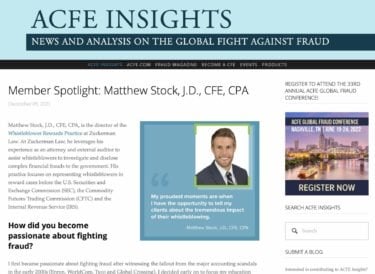Top 6 Reasons Why the SEC Whistleblower Program Is Successful
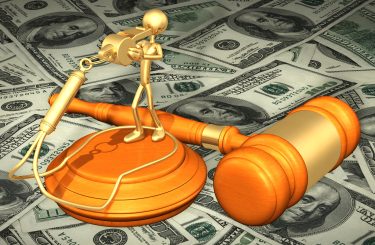 In response to the 2008 financial crisis, Congress passed the Dodd-Frank Act on July 21, 2010, which, among other things, created the SEC Whistleblower Program. A decade later, the program has proven to be successful in generating high-quality information regarding securities laws violations that have enabled the SEC to halt fraud schemes and protect investors. Since issuing its first award in 2012, the SEC Office of the Whistleblower has issued more than $1.7 billion in awards to whistleblowers, which includes several awards to our clients. The SEC actions associated with those orders have resulted in orders totaling more than $5 billion.
In response to the 2008 financial crisis, Congress passed the Dodd-Frank Act on July 21, 2010, which, among other things, created the SEC Whistleblower Program. A decade later, the program has proven to be successful in generating high-quality information regarding securities laws violations that have enabled the SEC to halt fraud schemes and protect investors. Since issuing its first award in 2012, the SEC Office of the Whistleblower has issued more than $1.7 billion in awards to whistleblowers, which includes several awards to our clients. The SEC actions associated with those orders have resulted in orders totaling more than $5 billion.
Contact us today to find out the strategies that we have successfully employed to secure multi-million dollar SEC whistleblower awards for our whistleblower clients.






There are six main reasons for the success of the Dodd-Frank Act’s SEC Whistleblower Program.
1. Strong Financial Incentives for Whistleblowers
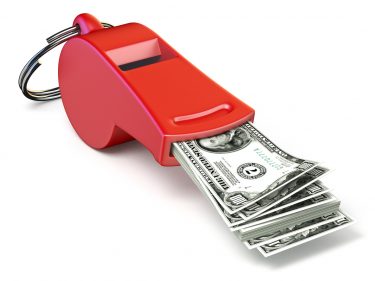 First, the SEC Whistleblower Program provides whistleblowers with a strong financial incentive to expose wrongdoing. Under the program, the SEC issues awards to eligible whistleblowers who provide original information that leads to successful enforcement actions with total monetary sanctions in excess of $1 million. In exchange for the valuable information, the SEC will pay whistleblowers between 10% and 30% of the total monetary sanction collected as an award. The largest SEC whistleblower awards to date are:
First, the SEC Whistleblower Program provides whistleblowers with a strong financial incentive to expose wrongdoing. Under the program, the SEC issues awards to eligible whistleblowers who provide original information that leads to successful enforcement actions with total monetary sanctions in excess of $1 million. In exchange for the valuable information, the SEC will pay whistleblowers between 10% and 30% of the total monetary sanction collected as an award. The largest SEC whistleblower awards to date are:
- $50 million issued on June 4, 2020;
- $50 million issued on March 19, 2018;
- $39 million issued on September 6, 2018; and
- $37 million issued on March 26, 2019.
While the financial incentive to report to the SEC is critical, it should be noted that approximately 85% of the award recipients to date raised concerns internally to their supervisors, compliance personnel, or through internal reporting mechanisms before reporting violations to the SEC. When internal compliance systems fail or companies attempt to ignore/downplay/cover-up legitimate concerns, the monetary awards the program offers appropriately incentivize whistleblowers to continue their efforts to expose the wrongdoing by reporting directly to the SEC.
2. Anonymous Reporting
 Second, the SEC Whistleblower Program allows whistleblowers to submit tips anonymously to the SEC if represented by counsel. In certain circumstances, a whistleblower’s identity may be withheld even from the SEC until applying for an award. However, even at the time of an award, a whistleblower’s identity is not made available to the public. Further, the SEC does not disclose which enforcement action is associated with a particular award. The option to report anonymously is important because some whistleblowers suffer retaliation in the workplace and other hardships due to their disclosures. Several of our clients have obtained awards while remaining anonymous outside the SEC.
Second, the SEC Whistleblower Program allows whistleblowers to submit tips anonymously to the SEC if represented by counsel. In certain circumstances, a whistleblower’s identity may be withheld even from the SEC until applying for an award. However, even at the time of an award, a whistleblower’s identity is not made available to the public. Further, the SEC does not disclose which enforcement action is associated with a particular award. The option to report anonymously is important because some whistleblowers suffer retaliation in the workplace and other hardships due to their disclosures. Several of our clients have obtained awards while remaining anonymous outside the SEC.
3. Most Individuals Are Eligible to Receive Awards
Third, most individuals, regardless of citizenship, are eligible to receive awards under the program. For example, compliance personnel, including internal auditors, external auditors, officers, and directors, are eligible for awards if certain exceptions apply. Individuals conducting independent analyses of fraud are eligible for awards. In certain circumstances, even culpable whistleblowers can be eligible for awards.
According to the SEC Whistleblower Program’s 2019 Annual Report, nearly 70% of the award recipients to-date are current or former insiders of the entity about which they reported information of wrongdoing to the SEC. The program acknowledges the importance of information from corporate insiders and gatekeepers (among others) and provides exceptions in its rules that permit them to be eligible for awards.
4. SEC Rejects “Gag Clauses”
 Fourth, the SEC has stood firm against so-called “gag clauses” in confidentiality, severance, and other employment-related agreements that have the effect of impeding disclosures to regulators and law enforcement. In particular, the SEC has taken several highly-publicized enforcement actions against companies for violating the Dodd-Frank anti-gag rule. This includes an action against the perpetrators of a fraudulent securities offering for their attempt to resolve investor allegations of wrongdoing by conditioning the return of investor funds on the investors signing agreements prohibiting them from reporting potential securities law violations to law enforcement.
Fourth, the SEC has stood firm against so-called “gag clauses” in confidentiality, severance, and other employment-related agreements that have the effect of impeding disclosures to regulators and law enforcement. In particular, the SEC has taken several highly-publicized enforcement actions against companies for violating the Dodd-Frank anti-gag rule. This includes an action against the perpetrators of a fraudulent securities offering for their attempt to resolve investor allegations of wrongdoing by conditioning the return of investor funds on the investors signing agreements prohibiting them from reporting potential securities law violations to law enforcement.
5. Protections for SEC Whistleblowers
Fifth, the SEC has taken some enforcement actions to combat whistleblower retaliation. For example, in 2014, the SEC issued a cease-and-desist order against Paradigm Capital Management Inc., a hedge fund advisory firm, for engaging in prohibited transactions and then retaliating against a whistleblower who disclosed the unlawful trading activity to the SEC.
Due to ambiguity in the statute, however, the anti-retaliation provision of the Dodd-Frank Act limits protected whistleblowing primarily to disclosures of potential violations to the SEC. See Digital Realty Trust, Inc. v. Somers, 138 S. Ct. 767 (2018). Whistleblowers who make disclosures only to their employers, however, might have a remedy under Section 806 of the Sarbanes-Oxley Act (SOX), which protects both internal whistleblowing (e.g., reporting securities fraud to a supervisor) and whistleblowing to the SEC or under state whistleblower protection laws. Proposed legislation would clarify that the Dodd-Frank Act anti-retaliation provision protects both internal whistleblowing and whistleblowing to the SEC.
6. SEC Whistleblower Program Is a Critical Enforcement Tool
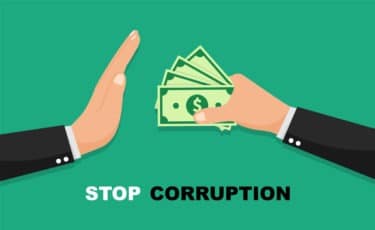 Since 2011, the SEC Whistleblower Program has steadily gained momentum. The SEC has recovered more than $2.5 billion in financial remedies from wrongdoers and issued more than $505 million in awards to whistleblowers. And as Chair Clayton noted in a statement concerning proposed modifications to the program, “The Commission’s whistleblower program has contributed significantly to our ability to detect wrongdoing and better protect investors and the marketplace, particularly where fraud is well-hidden or difficult to detect. As we continue our pursuit of enforcement initiatives focused on misconduct that impacts the retail investor, the strength of our whistleblower program is a critical component in our investor protection toolbox.”
Since 2011, the SEC Whistleblower Program has steadily gained momentum. The SEC has recovered more than $2.5 billion in financial remedies from wrongdoers and issued more than $505 million in awards to whistleblowers. And as Chair Clayton noted in a statement concerning proposed modifications to the program, “The Commission’s whistleblower program has contributed significantly to our ability to detect wrongdoing and better protect investors and the marketplace, particularly where fraud is well-hidden or difficult to detect. As we continue our pursuit of enforcement initiatives focused on misconduct that impacts the retail investor, the strength of our whistleblower program is a critical component in our investor protection toolbox.”
For more information about the Dodd-Frank Act’s SEC Whistleblower Program, you can reference Zuckerman Law’s e-book: SEC Whistleblower Program: Tips from SEC Whistleblower Attorneys to Maximize an SEC Whistleblower Award. This e-book offers practical tips for whistleblowers and insights that the firm has gained through representing whistleblowers before the SEC.
SEC Whistleblower Attorneys
If you have information that may qualify for an SEC whistleblower award, contact the Director of our SEC whistleblower practice at [email protected] or call our leading SEC whistleblower lawyers at (202) 930-5901 or (202) 262-8959. All inquiries are confidential. In conjunction with our courageous clients, we have helped the SEC halt multi-million dollar investment schemes, expose violations at large publicly traded companies, and return funds to defrauded investors.
For more information about the Dodd-Frank Act’s SEC Whistleblower Program, see 5 Tips for SEC Whistleblowers and Lessons Learned from SEC Whistleblower Awards. And see our MarketWatch column: More than 33,000 tips, $2.5 billion in financial remedies and $500 million in awards to investors — the SEC’s whistleblower program turns 10 years old today.
In conjunction with our courageous clients, our SEC whistleblower attorneys have helped the SEC halt multi-million dollar investment schemes, expose violations at large publicly traded companies, and return funds to defrauded investors.
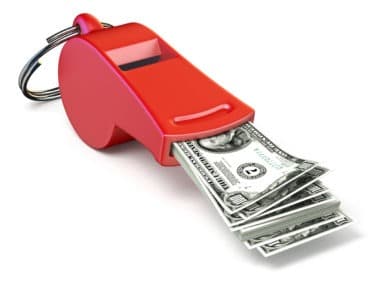
Recently the Association of Certified Fraud Examiners published a profile of SEC whistleblower attorney Matthew Stock’s success working with whistleblowers to fight fraud:
Click here to hear SEC whistleblower attorney Matthew Stock’s tips for SEC whistleblowers.
How to Qualify for an SEC Whistleblower Award
SEC Whistleblower Resources
- See our column in Forbes: One Billion Reasons Why The SEC Whistleblower-Reward Program Is Effective.
- See our column in National Law Review: 5 Tips for SEC Whistleblowers and Lessons Learned from SEC Whistleblower Awards.
- See our column in Going Concern: Sarbanes-Oxley 15 Years Later: Accountants Need to Speak Up Now More Than Ever.
- See our post in Accounting Today: Whistleblower Protections and Incentives for Auditors and Accountants.
- See our post in The Compliance and Ethics Blog: Shkreli Trial Reveals the Challenges Faced by Compliance Whistleblowers.
SEC Whistleblower Process
SEC Whistleblower Awards
Are SEC Whistleblowers Protected from Retaliation?
Click here to learn more about anti-retaliation protections for SEC whistleblowers under the Dodd-Frank Act and Sarbanes-Oxley Act.


